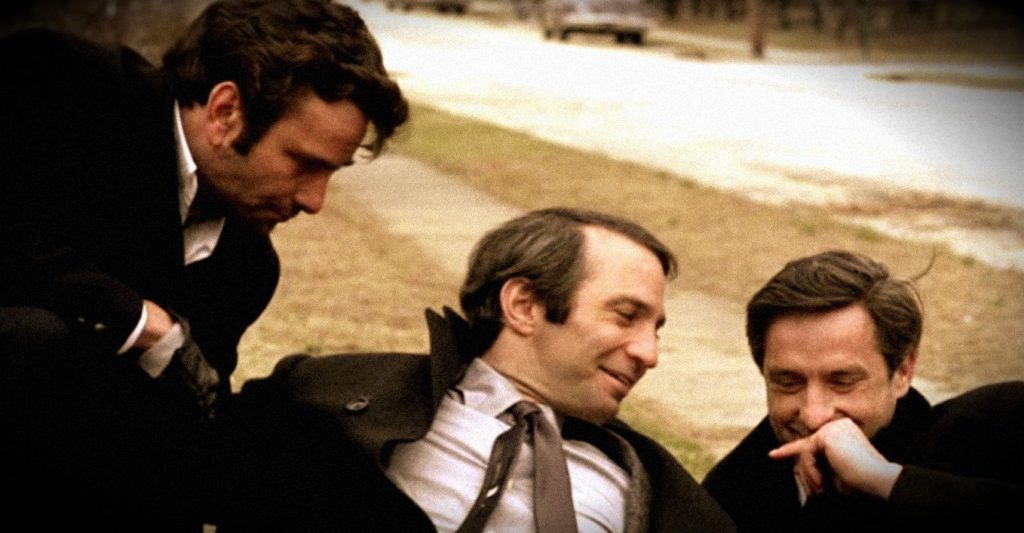
For a long time this film was nearly impossible to see. John Cassavetes is my favorite filmmaker and for a long while this title eluded me. My friend Dan had a bootleg of which I was insanely envious, largely due to the fact that it came with the BBC documentary on the production of the film. Then in my sophomore year of college I was able to persuade my friend Jennifer to rent a VHS of Husbands from TLA video. I quickly made a DVD copy of that VHS.
Immediately it surpassed all of Cassavetes’ other films I had seen to that point (which was all of them except Love Streams, which Jennifer kindly rented for me the following week). It’s not as emotional as A Woman Under The Influence or as poignant and timeless as Love Streams, yet Husbands spoke to me in a very specific and personal way.
Unlike Cassavetes’ other films Husbands is focused on friendship, the very nature of that relationship, as opposed to romantic, sexual, or career oriented relationships. To put an even finer point on it, Husbands is about the friendship between men, linking it thematicly with Elaine May’s masterpiece Mikey & Nicky (in which John Cassavetes and Peter Falk also star). The theme of friendship amongst men is so very often relegated to the War and Western genre films that seeing a straight contemporary narrative with such a focus executed in Cassavetes’ brutally honest realist style is a revelation. So many filmmakers would have opted to make every character redemptive within the narrative, but not Cassavetes. Like all of his works Husbands is about truth.
To attempt a comparison, the literary equivalent of a John Cassavetes’ film, Husbands in particular, I believe would be the poetry of Richard Hugo. Hugo and Cassavetes both seek to reveal the truth of their own inner emotional lives tirelessly. The truths they find often being so undesirable that their work, be it a poem in Hugo’s case or a film in Cassavetes’, is often interpreted as controversial at best and chauvinistic at worst. Hence the debate that Kathleen Hanna articulated so well in her Le Tigre song What’s Yr Take On Cassavetes; “genius or chauvinist”?
Husbands (1970) is about three men, (played by Cassavetes, Peter Falk & Ben Gazzara) during the forty-eight hours immediately after the funeral of their best friend. During those forty-eight hours depicted in the film the three men behave badly and yes, with a degree of chauvinism. But that isn’t what the film is about. The chauvinism is a character-trait; to remove it would enable plasticity in the performances. Chauvinism and masculinity exist simply as a mechanic of the daily interactions of these characters, and they can’t neglect to take it with them through the narrative, it wouldn’t make filmic sense. What the film is really about is the strain death has put on the masculine social mechanics of the interactions between these three friends and how they cope with that strain through their performative masculinity which functions not only as an inhibiting factor but a self-destructive one as well.
Husbands, like much of Cassavetes’ work, emphasizes the performers role in narrative construction, often over the technical aspects of filmic story telling. It’s an approach I personally prefer, but is for the most part neglected in the dialogue between contemporary filmmakers and their audience. So it may be reasonable to assume that audiences watching a John Cassavetes’ film today would have difficulty immersing themselves in the film without some critical assistance.
